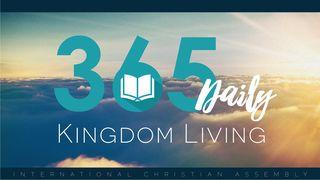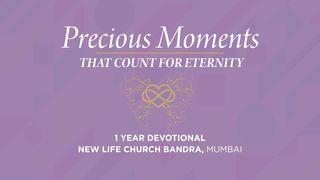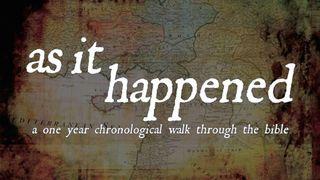Plan info
For The Love Of GodSample

WHEN THE HUMAN AUTHORS of the Bible wrote Scripture, more often than not they had read and thought through the Scriptures that had already been written. Thus the earliest writers of the New Testament books constantly read (and cited and alluded to) what we call the Old Testament. The later writers of the New Testament read at least some of the early New Testament books (consider 2 Pet. 3:15-16). Similarly, the later writers of the Old Testament read all or some of the earlier Old Testament books.
It is very likely that Jeremiah, a sixth-century prophet, had read and reflected on the work of Hosea, an eighth-century prophet. Hosea’s book develops at great length the analogy between Israel and a prostitute: apostasy is a form of spiritual prostitution. This horrible but telling analogy is teased out in a number of ways—not least in God’s remarkably faithful love for his prostitute-bride. Some elements of this theme from Hosea are picked up and developed by Jeremiah (not least in Jer. 3).
The first verse alludes to Deuteronomy 24:1-4. There it is established that if a woman is divorced and marries another, she cannot divorce the second and return to the first. Sadly, the people of Judah have “lived as a prostitute with many lovers” (Jer. 3:1)—and now they make noises about coming back to the Lord as if there is no problem. They think they can saunter into God’s presence and nostalgically pray, “My Father, my friend from my youth, will you always be angry?” (Jer. 3:4-5)—as if approaching this vastly offended God is an easy matter, as if the results were a foregone conclusion, as if whatever difficulty that remains lies with God and his unyielding anger. But God’s perspective is rather different. He quietly comments, “This is how you talk, but you do all the evil you can” (Jer. 3:5). Pretensions of repentance, promises of allegiance, and pretty allusions to a past relationship mean nothing to God in comparison with present performance. Religious cant often hides not only ungodly behavior, but a secret lust to do evil (Jer. 3:5)—though the person doing the evil is usually so blind that he or she cannot label it as evil.
The northern nation of Israel was caught in spiritual adultery, and God gave her “a certificate of divorce” (Jer. 3:6-8): she was sent off into exile in 722 B.C. under the Assyrian king, Sargon II. From this, her sister Judah learned nothing: a century later she did what her sister Israel did, but with even less excuse since she had seen what had happened to Israel (Jer. 3:9ff.).
To what extent is contemporary evangelicalism selling out the Gospel, having learned almost nothing from the somewhat similar capsize of Protestant confessionalism about a hundred years ago?
About this Plan

A daily devotional for discovering the riches of God's word: For the Love of God is a daily devotional designed to walk a person through the Bible in a year while assisting the reader in discovering the riches of God's W...
More
We would like to thank The Gospel Coalition for providing this plan. For more information, please visit: thegospelcoalition.org









